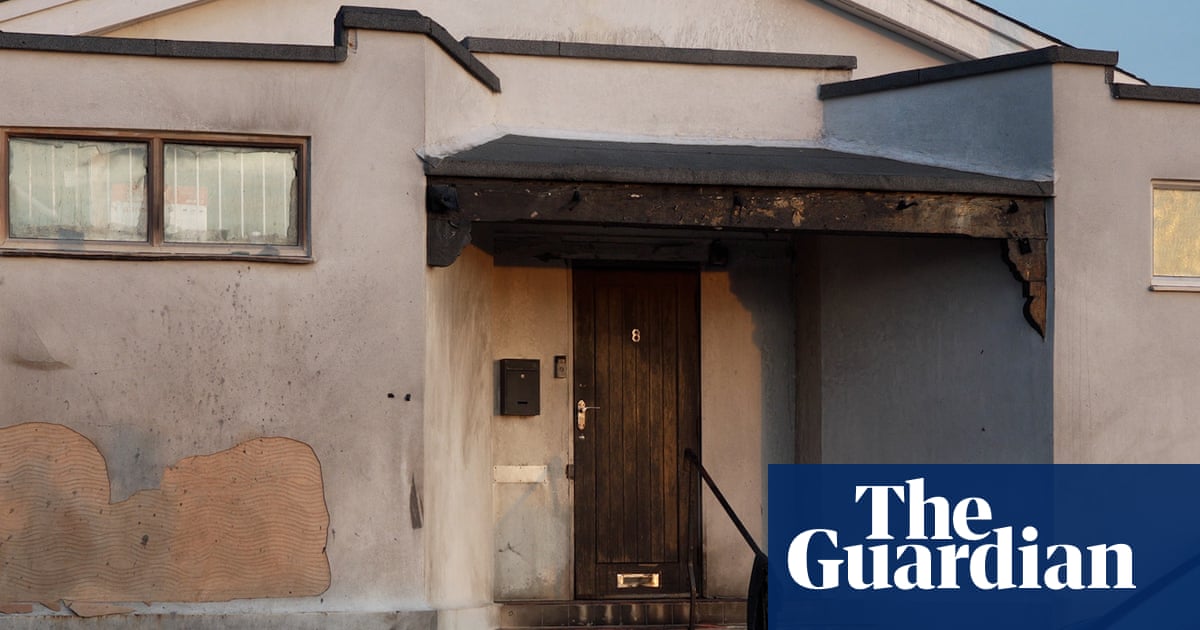It was easy to understand why Edward Berger’s name was being bandied around in relation to the reinvention of 007, the director having shown himself to be more than capable of both extravagantly staged action (his Oscar-winning breakout All Quiet on the Western Front) and knife-edge intrigue (his Oscar-winning follow-up Conclave). He dismissed speculation at the time (with some mild annoyance) and the job has since landed at the feet of Denis Villeneuve – but his latest, China-set gambling drama Ballad of a Small Player, adds flashy bombast to his résumé and helps to explain why even though he might have passed on Bond (and recently Ocean’s too), he’s in development on a Bourne.
Berger is a canny commercial director, confidently switching between genre, language and location, the kind of able film-maker studios are desperate to entrust a franchise with, but I hope he’s sparing with the time he chooses to spend under the studio thumb. Ballad of a Small Player, an operatic adaptation of the Lawrence Osborne novel, is not quite him at his best – it is far more bark than bite – but it’s made with such force and finesse and is so distinctively separate from his other films that I look forward to seeing what other non-sequel journeys he chooses to take us on in the future.
He’s headed straight from Rome to Macau, the Vegas of China, complete with fake skies, shoddier versions of global landmarks and a deck of gamblers whose shamelessly indulgent nights turn into existentially regretful days. One of them is Lord Doyle (Colin Farrell), a pretentious longtime guest of a hotel he’s struggling to afford. His performed posh accent and fake Savile Row gloves mask a working-class Irish pretender, whose luck at the Baccarat table has started to fade. His unpaid bills are mounting up and then there’s the small problem of a new hotel guest who might just know who he really is.
That guest is played by Tilda Swinton, who had another small role in a stylish Netflix character study about a man with a specific skillset, David Fincher’s The Killer. In that film she was such a knockout that in one excellent extended scene, she managed to steal the entire movie, but here she’s a strange distraction, looking more like a character from a Roald Dahl novel (and in her final scene, like someone from The Hunger Games universe). It’s too much of a dress-up bit and her performance, and absurd styling, is a reflection of Berger’s tendency to crank too much of his film up to an 11 with a thumpingly dramatic score from Volker Bertelmann and an uncomfortably dialled-up sound design. At times the latter is horribly necessary, during some particularly unpleasant food binges, but too often, it renders us numb.
It is to Farrell’s great credit that he avoids following Berger all the way to the top and over, a role that would have forced a lesser actor into deafening histrionics (one can only wince at the thought of Nicolas Cage here) but one that he embodies with more thought and careful modulation. His character is an addict who cannot stop consuming, terrified by the fear that he might never be full. Farrell’s jittery unease – as he goes for one more game, has one more drink, eats one more slice – is made difficult to watch, but it sears less because of the cranked-up nature of Berger’s direction and more because of the actor’s haunted drive. What if there’s nothing out there to fill me up? Outside of his vices, he also hopes that a casino hostess, played with empathy by Fala Chen, might help.
Where the film takes that particular, rather cliched dynamic is hard to understand before it becomes hard to stomach, a last-act reveal that we’ve seen too many times before. We’ve seen less of Macau though, at least in western cinema (Bond made a brief stop in Skyfall), and Berger shows its neon-drowned excess as successfully seductive before it becomes repellent, like so much of the film. The grim spectre of suicide brings a large shadow over the film, spoken about frankly by those who have found themselves in places without many options, and in the film’s hardest moments, Berger is able to capture just how awfully the overwhelm of addiction can make it all seem entirely hopeless. He is too often distracted though by the overwhelm of technique, and Ballad of a Small Player ends up a little too slight, a sketchy look at a familiarly doomed character (a third Oscar film in a row seems unlikely). Farrell is the real winner here.
-
Ballad of a Small Player is screening at the Toronto film festival and will be released in cinemas on 15 October and on Netflix on 29 October

 1 month ago
39
1 month ago
39

















































